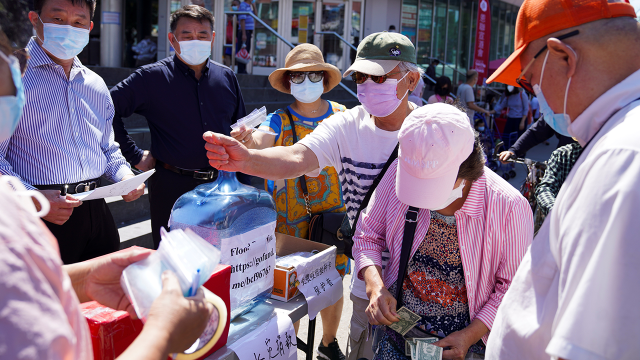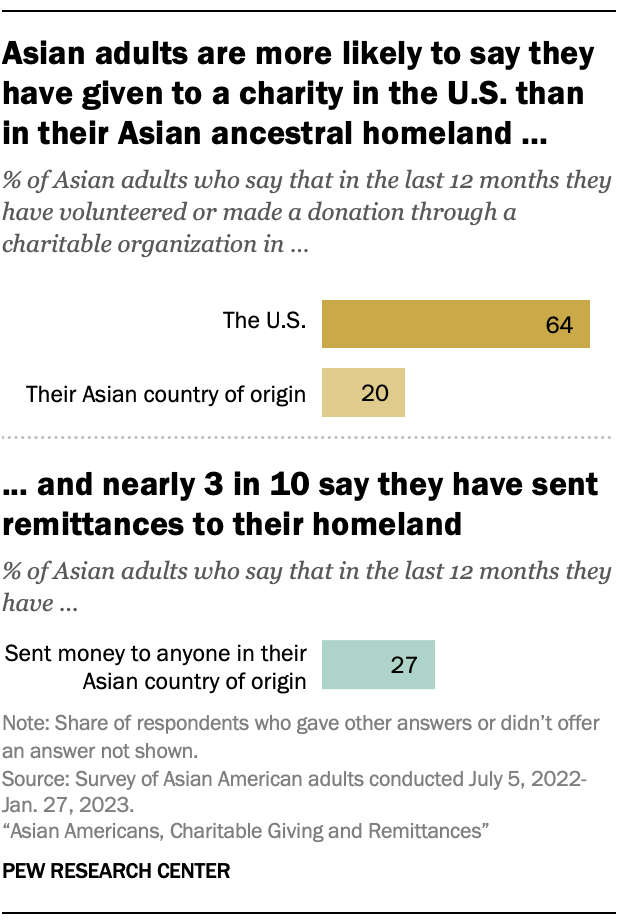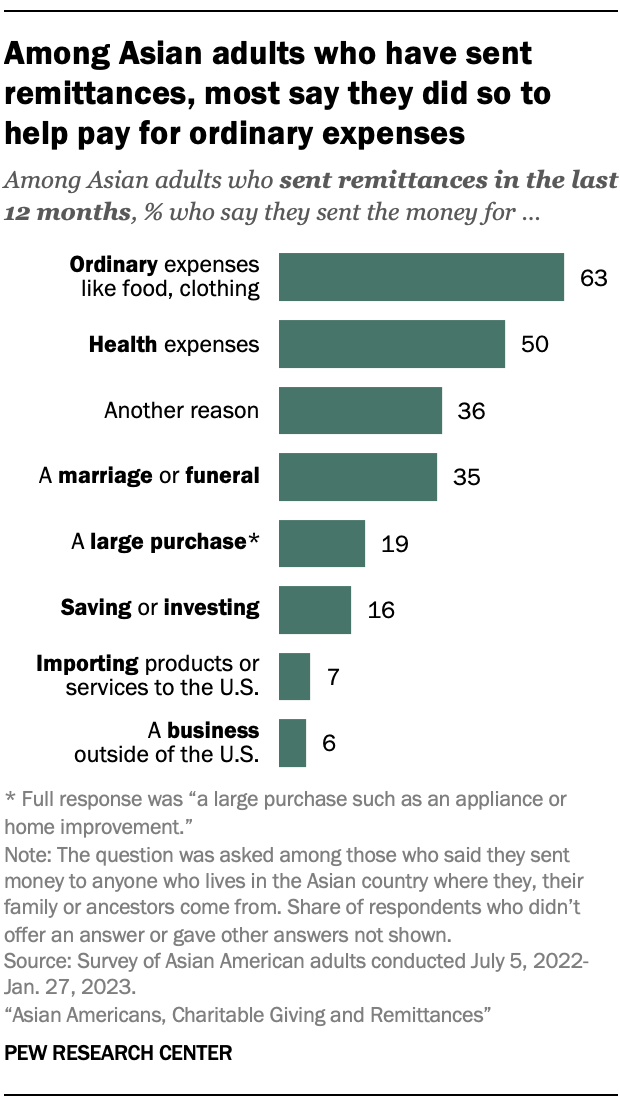
Asian Americans are the only major racial or ethnic group in the United States that is majority immigrant. Many Asian Americans either grew up or spent considerable time in their Asian ancestral homeland, and many have immediate family members who still live there today.

Amid these personal and family connections between Asian Americans and their ancestral homelands, we wanted to understand the financial and philanthropic ties they have to both the U.S. and their Asian origin countries.
Overall, 64% of Asian adults say they have given to a charitable organization in the U.S. in the last 12 months, according to a new analysis of a multilingual, nationally representative survey of 7,006 Asian American adults conducted July 5, 2022, through Jan. 27, 2023.
Meanwhile, 20% of Asian adults in the U.S. say they have given to a charity located in their Asian country of origin in the 12 months before the survey. And 27% say they have sent money to someone living there – personal financial transfers known as remittances.
In 2022, immigrants made up 54% of all Asian Americans and 67% of Asian American adults, according to a Pew Research Center analysis of the 2022 American Community Survey.1 In our survey, 54% of Asian adults report having immediate family members still living in their Asian origin country.
Among the survey’s other key findings:
- Most Asian adults (67%) have given to a charitable organization in the U.S., their Asian country of origin or both places. Overall, they are about three times more likely to say they have volunteered or made a donation through a charity in the U.S. than one in their Asian origin country in the 12 months before the survey (64% vs. 20%).
- Regardless of whether Asian adults are immigrants or born in the U.S., most have given to a U.S. charity. More than 60% of each group say they have done so. However, immigrants are more likely than U.S.-born Asian adults to say they have given to a charity in their Asian country of origin (23% vs. 11%).

- Whether Asian Americans have given to charitable organizations is associated with how important religion is in their life. Asian adults who say religion is very important in their life are more likely than those who say it is not too or not at all important to have given to a charity in either of the places asked about.
- Filipino, Indian and Vietnamese adults in the U.S. are more likely than other Asian origin groups to say they have sent remittances in the 12 months before the survey. Chinese and Japanese adults in the U.S. are among the least likely to say so.
- Among Asian adults who have sent remittances, the most common reasons for doing so are to help with ordinary expenses (63%) and health expenses (50%). Reasons vary somewhat across Asian origin groups, education and family ties to one’s ancestral homeland.
- In 2021, Asian Americans’ places of origin collectively received about $63 billion in remittances from the U.S. Among the biggest recipients were the six most common origin countries for Asian Americans – India, the Philippines, China, Vietnam, South Korea and Japan – which received about $55 billion of these remittances, according to our analysis of World Bank data.




